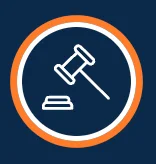Who can file a nursing home wrongful death lawsuit depends on state law. In South Carolina, the personal representative or executor files the lawsuit. Usually, that’s the person named in the will, but the court can appoint someone if necessary.
Although it’s the personal representative who files, the law determines the beneficiaries of the lawsuit. In South Carolina, the spouse and children are the priority. If there are none, then other heirs may receive the proceeds of the claim.
Jordan Law Center’s Greenville nursing home abuse lawyer explains nursing home wrongful death lawsuits and who can file.
Understanding Wrongful Death in a Nursing Home Setting
A wrongful death lawsuit is a compensation claim when someone is hurt by the wrongful conduct of others. It’s similar to a personal injury claim, but the victim suffers a fatal injury. Since they can’t bring their own claim, survivors may claim compensation for the loss of their loved one.
A wrongful death can occur in a nursing home setting. It may result from medical malpractice or general negligence. When a wrongful act or omission results in the death of a nursing home resident, a personal representative may initiate a claim against the party responsible. This is often a nursing home or a medical care provider.
The process to claim compensation for wrongful death in a nursing home setting is a lawsuit.
The lawsuit names the responsible party and the grounds for liability. If the claim is successful, beneficiaries receive compensation for financial and emotional losses relating to the death of their loved one.
Who Has the Legal Right To File a Nursing Home Wrongful Death Lawsuit?
In South Carolina, the personal representative has the legal right to file a nursing home wrongful death lawsuit. They file the case on behalf of all beneficiaries.
The personal representative may or may not also be a beneficiary.
Often, a person in a nursing home has a will that names a personal representative. If there is no will, the court appoints the representative. It’s usually a child, spouse, or other close relative.
Proving Negligence in a Nursing Home Wrongful Death Claim
A successful wrongful death claim proves that the nursing home, medical care provider, or other responsible party acted negligently. Negligence can be an affirmative act, such as giving someone the wrong medication. It can also be a failure to act, such as leaving someone unattended for a long period of time or ignoring signs of a worsening medical condition.
Negligence may be related to medical care or personal care. For example, a broken hand railing that causes a fall is non-medical negligence. A medical condition misdiagnosis is medical negligence. It’s important to assert the appropriate claim or claims.
Negligence is both doing something that a reasonable person wouldn’t do and failing to do something a reasonable person would do.
Expert testimony is often required to establish what’s reasonable. It’s a flexible standard that can vary from situation to situation. A nursing home wrongful death lawsuit must explain what happened and provide evidence. It must show that negligence occurred and that it was a cause of death.
What is considered negligence in a nursing home?
Examples of what may be considered negligence in a nursing home include:
- Medical malpractice, medical neglect, errors
- Falls
- Malnutrition
- Elopement, wandering away
- Bedsores
- Fires, electric shock
- Overall neglect
- Unsanitary conditions, infection
- Violence
- Failing to protect residents from employee misconduct
Damages Available in a Nursing Home Wrongful Death Lawsuit
Compensation for a nursing home wrongful death lawsuit should reflect the losses that beneficiaries have sustained because of the death of their loved one. Losses may include financial losses like bills and expenses. Lost income that the deceased person would have provided to the family may be claimed, but this may not apply when the deceased person was in a nursing home. Survivors may also claim for loss of guidance, companionship, and other intangible losses.
South Carolina law says that the standard for compensation is an amount proportionate to the injury resulting from the death to the beneficiaries. It’s important for the personal representative to investigate and document the relationship between family members, along with direct financial losses.
Beneficiaries
The beneficiaries of a wrongful death lawsuit for a nursing home death are:
- The spouse and children, always
- If no spouse or children, parents
- If there are no parents, other heirs
Exemplary damages
If appropriate, a claim may include exemplary damages. A claim may qualify for exemplary damages if the wrongful act results from recklessness, willfulness, or malice.
Dividing compensation
Compensation is divided among survivors according to South Carolina law, as though the person had died without a will. When there is a spouse and no children, the spouse receives the entire amount. If there are children, the spouse receives half, and the children split the rest. The person’s will still applies to the division of their personal estate.
Survival action
Some losses may not be directly covered by the wrongful death claim. These losses may be claimed in a separate survival action.
Common damages in a survival action include medical bills and funeral expenses, if paid by the estate, and pain and suffering before death.
Settlement of a Nursing Home Wrongful Death Case
The personal representative has the authority to settle the case. They must petition the probate or circuit court seeking a settlement.
If a case does not settle, there may be a trial.
How a Greenville Nursing Home Abuse Lawyer Can Help
If you have lost a loved one, we are sorry. A Greenville nursing home abuse lawyer can help you determine if a wrongful death occurred.
They may determine what your claim is worth and build the evidence. They can explain the case process and what you need to consider.
A lawyer can pursue your case, including preliminary stages, case filing, and settlement negotiation. They can also take your case to trial.
At Jordan Law Center, we are wrongful death nursing home lawyers. We help family members seek justice and compensation. Please contact Jordan Law Center at 864-808-1810 to talk to a lawyer.







“There is not enough GREAT THINGS I could say about Jordan Law Center.”